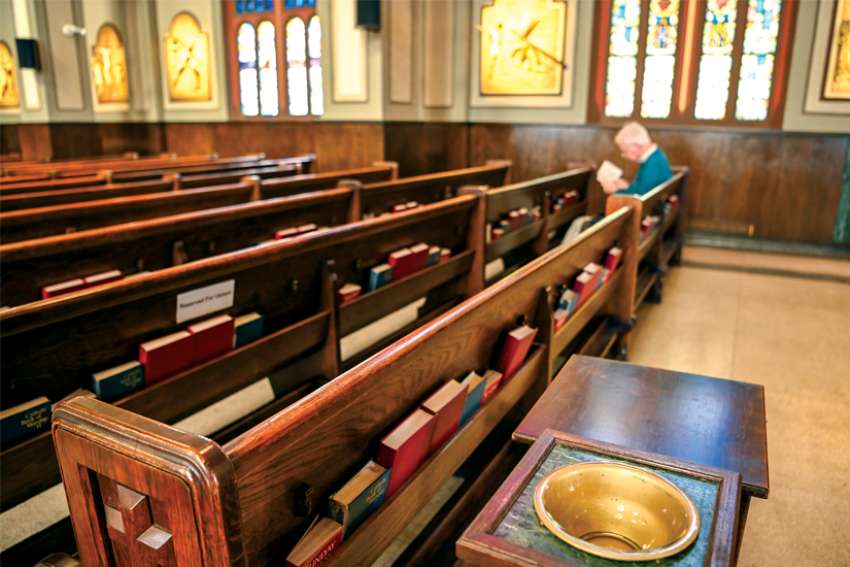But the extraordinary measures implemented by governments and many bishops — including Mass suspensions — are prudent. In this battle against COVID-19 there should be little separation between Church and State.
Freedom of religion and freedom to peacefully assemble for liturgical celebrations are, of course, fundamental Canadian rights. But governments have some latitude to interfere when they perceive a threat to public safety. In this case, thankfully, any wrangling about constitutional rights and Mass cancellations has been unnecessary. To their credit, bishops, health experts and politicians are walking as one and, as Cardinal Thomas Collins has said, exercising their “duty of care.”
That means in dioceses across the country, weekday and weekend Masses are being cancelled following a call to cap public events at 50 people. There are no Masses right across Quebec, as well as across much of Ontario and other provinces. And the list is still growing.
Odd as it sounds, these restrictions that are emptying Sunday pews are very Christian acts. The “spiritual suffering” of forgoing Mass is affirmation of our shared duty as children of God to contain this awful virus and safeguard all church goers — particularly the elderly and vulnerable — as well as priests and ministers. This is a time when our obligations as citizens and as Christians seamlessly align.
The empty pews are now an unusual sign of our solidarity, a coming together by staying apart. They have emerged as an unconventional element of Lenten sacrifice as we unite as faith communities in an unprecedented way during our journey of prayer and abstinence towards Easter.
But that shouldn’t mean totally empty churches. For now at least, some remain open for daily Mass and, provided precautions are taken, open on Sunday for private prayer, small prayer services and, in some cases, reception of the Eucharist.
Church leaders are obligated in difficult times to respond prudently based on the best information available. Today, anything short of invoking significant preventative measures would be a failure of pastoral and civic duty, to say nothing of possible legal responsibility, and an invitation to scandal should a parish community become a conduit to spread the virus.
But all this urging towards social distancing and self isolating does not mean disconnecting totally from the world. It doesn’t mean abandoning those who are sick, vulnerable, frightened or lonely. Indeed, our duty of care towards others has intensified.
Consider how Mass is concluded. The liturgy does not abruptly come to an end. We are called to continue as disciples of Christ as we go into our communities and bear witnesses to the Gospel by our words and deeds.
No virus can cancel that mission.


